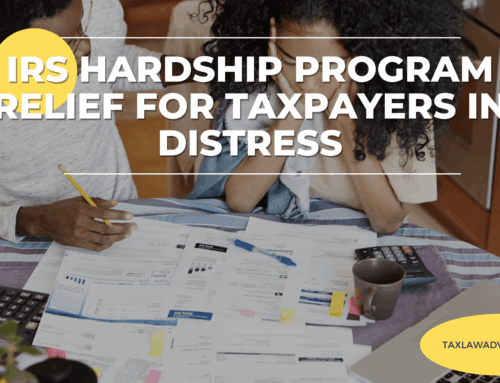The IRS is set to receive a big funding boost, to the tune of $80 billion in increased funding over the next decade. Among other things, the funding boost will close the tax gap and allow for more enforcement.
What Is The IRS Tax Gap?
The tax gap is the difference between what taxpayers owe to the IRS and what they’ve been able to collect from taxpayers. This is important because it means that collections will be ramped up. It’s been rather quiet for some time, especially due to COVID-19. But that is about to change.
If you owe over $10,000 to the IRS, contact us now to discuss your options and get tax debt relief. Our team works with individuals and businesses throughout the US, and your initial consultation is free.
Enforcement = Audits
Just over half of that is earmarked for “enforcement” and this means more funding for audits. It is expected that the IRS will increase audits with these funds. This news has many taxpayers worried that they could be the next ones selected for an audit. But how worried should you really be? Let’s take a look at the facts.
Audits Are Nothing New
First, it’s important to understand that audits are nothing new. The IRS has been conducting them for years, and every year tens of thousands of people are selected for an audit.
The IRS is required by law to conduct audits on a certain percentage of tax returns each year. However, they have discretion over which returns to audit. In the past, they’ve mostly audited businesses and wealthy individuals. But now, it seems that they’re looking to increase the number of audits of middle-class taxpayers.
What Does This Mean For You?
If you are an individual taxpayer or small business owner, this news may cause some worry. But you’ll be glad to know that this is not a cause for alarm. The chances of being audited are still relatively low. According to the U.S. Government Accountability Office, “From tax years 2010 to 2019, audit rates of individual income tax returns decreased for all income levels. On average, the audit rate for these returns decreased from 0.9 percent to 0.25 percent.”
However, there are certain factors that can increase your chances of being audited. For example, if you’re self-employed or have a lot of income from investments, you’re more likely to be audited than someone who only has a salary from their day job. The IRS also pays close attention to taxpayers who claim charitable deductions, business expenses, or the Earned Income Tax Credit.
Of course, there’s always a chance that you’ll be selected for an audit, even if you use the standard deductions and don’t have any other red flags.
How To Avoid An Audit
The best way to avoid an audit is to make sure that your taxes are filed correctly and on time. You can also help your case by maintaining good records and keeping track of all of your deductions.
If you do find yourself selected for an audit, the best thing to do is to stay calm and cooperate with the IRS agent assigned to your case. Also, don’t hesitate to seek professional help. An experienced tax attorney or accountant can help you navigate the audit process and ensure that everything is handled correctly.
Overall, there is no need to panic if the IRS is getting more money for audits. While your chances of being audited may go up slightly, as long as you file your taxes correctly and on time, you should be fine. And if you do find yourself selected for an audit, professional help can make the process much easier.
About Tax Law Advocates
Tax Law Advocates is a team of federally licensed enrolled agents, tax attorneys, and accountants. We all work towards the common goal of helping you solve issues with both the IRS and state tax authorities. At Tax Law Advocates, we are the leader in tax resolution services. Contact us today!






